The Boeing Quantum Creators Prize recognizes early-career researchers for work that moves the field of quantum information science and engineering in new directions. The program began in 2021 and expanded in 2023 thanks to a new commitment from Boeing. Prize awardees participate in the annual Quantum Creators Prize Symposium, receive a monetary honorarium, a certificate, and reimbursed travel to the annual Chicago Quantum Summit.
The 2023 Quantum Creators Prize Symposium was held as part of the Chicago Quantum Summit on November 13 –14, 2023.
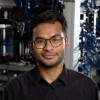
Srujan Meesala, California Institute of Technology
Role: Postdoc
Institution: California Institute of Technology
Bio: Srujan Meesala is a postdoctoral scholar at the California Institute of Technology. He is involved with efforts to connect superconducting qubits with optical photons in Professor Oskar Painter’s group. Meesala received his PhD from Harvard University, where he worked on diamond color centers in the group of Professor Marko Loncar.
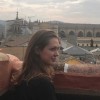
Melissa Guidry, Stanford University
Role: Postdoc
Institution: Stanford University
Bio: Melissa Guidry is a postdoctoral researcher in the group of Professor Jelena Vuckovic at Stanford University, where she received her PhD in applied physics. Her primary research interest involves understanding and engineering the quantum states of multimode nonlinear optics via integrated photonics.
As of July 2025: Postdoctoral Scholar, Kavli Institute, MIT
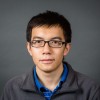
Pai Peng, Princeton University
Role: Postdoc
Institution: Princeton University
Bio: Pai Peng is a Princeton (University) Quantum Initiative postdoctoral fellow working with Professor Jeff Thompson. Peng received his PhD from the Massachusetts Institute of Technology with Professor Paola Cappellaro in 2022. His work explores quantum computation using neutral atoms and quantum simulation using solid-state qubits.
As of July 2025: Assistant Professor, Peking University
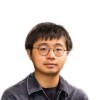
Yujie Zhang, University of Illinois Urbana-Champaign
Role: PhD Student
Institution: University of Illinois, Urbana-Champaign
Bio: Yujie Zhang is a PhD student at the University of Illinois, Urbana-Champaign, advised by Professor Virginia Lorenz and Professor Eric Chitambar. Zhang’s research aims to employ photonics quantum system and tools in quantum information theory to investigate quantum foundation and pioneer new quantum-enhanced quantum technologies in both theory and experiment.
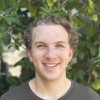
Adam Shaw, California Institute of Technology
Role: PhD Student
Institution: California Institute of Technology
Bio: Adam Shaw is a sixth-year graduate student at the CalTech advised by Manuel Endres. During his PhD, Shaw has studied how to engineer quantum effects in arrays of individually trapped atoms, with applications and experimental contributions towards quantum metrology, simulation, and computation.
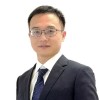
Yu-Hao Deng, University of Chicago
Role: PhD Student
Institution: University of Science and Technology of China
Bio: Yu-Hao Deng is a PhD student in Jian-Wei Pan and Chao-Yang Lu’s group at the University of Science and Technology in China and a visiting PhD student in the Bernien Lab at the University of Chicago’s Pritzker School of Molecular Engineering. The team performed the first photonic quantum computational advantage experiment, Jiuzhang, in 2020. His work extends to Jiuzhang 2.0 and 3.0, applying the processor to solving graph problems, and a quantum interference experiment at an astronomical scale.
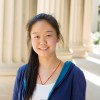
Haocun Yu, University of Vienna
Role: Postdoc
Institution: University of Vienna
Bio: Haocun Yu is a Marie Sklodowska-Curie postdoctoral fellow at the University of Vienna. She received her PhD in physics from MIT in 2020. Her research is dedicated to quantum-enhanced precision measurements for fundamental physics, including gravitational-wave detectors, and the interface between quantum mechanics and gravity.
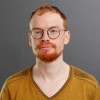
Freek Witteveen, University of Copenhagen
Role: Postdoc
Institution: University of Copenhagen
Bio: Freek Witteveen is a postdoc at the Center for Mathematics of Quantum Theory (QMATH) at the University of Copenhagen. He obtained his PhD at QuSoft and the University of Amsterdam with Professor Michael Walter. Witteveen’s research interests are broadly at the interface of many-body physics and quantum information sciences.
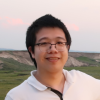
Anjun Chu, University of Colorado, Boulder
Role: PhD Student
Institution: University of Colorado, Boulder
Bio: Anjun Chu is a graduate student in the theory group of Professor Ana Maria Rey at JILA, University of Colorado Boulder. Chu’s research has focused on quantum many-body dynamics in spin systems and their multilevel extensions and has closely collaborated with experimental groups on problems relevant for quantum simulation and metrology in optical lattice clocks and cavity QED systems.
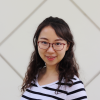
Xueyue (Sherry) Zhang, University of California, Berkeley
Role: Postdoc
Institution: University of California, Berkeley
Bio: Xueyue (Sherry) Zhang is a Miller Postdoctoral Fellow at UC Berkeley working with Prof. Alp Sipahigil. She earned her Ph.D. from Caltech in Prof. Oskar Painter’s group. Her research interests include increasing the connectivity between superconducting qubits via engineered microwave waveguides and developing spin-photon interface of color centers in silicon.
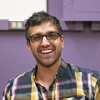
Kevin Singh, University of Chicago
Role: Postdoc
Institution: University of Chicago
Bio: Kevin Singh is a postdoctoral researcher in the Bernien Lab at UChicago’s Pritzker School of Molecular Engineering. He received his S.B. in physics in 2013 from MIT and his PhD in physics in 2019 from the University of California Santa Barbara, working with Dr. David Weld.
As of July 2025: Assistant Professor, The Ohio State University
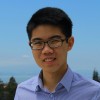
Nathanan (Nat) Tantivasadakarn, California Institute of Technology
Role: Postdoc
Institution: California Institute of Technology
Bio: Nat Tantivasadakarn is a Burke postdoctoral fellow at Caltech. His research interests explore the interplay between topological phases of matter, quantum error correction and computation, non-equilibrium quantum dynamics and generalized symmetries. Tantivasadakarn obtained his Ph.D. from Harvard University.
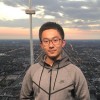
Xinghan Guo, University of Chicago
Role: PhD Student
Institution: University of Chicago
Bio: Xinghan Guo is a PhD candidate in the High Lab at the University of Chicago’s Pritzker School of Molecular Engineering. His research includes diamond growth, diamond-based heterostructure fabrication, nanophotonic integration and characterization of group IV centers. He received BE in Microelectronic Engineering from Tsinghua University in 2017.
As of July 2025: Postdoctoral Associate, Yale University
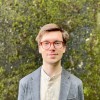
Sebastian Gorgon, University of Cambridge
Role: PhD Student
Institution: University of Cambridge
Bio: Sebastian Gorgon is a PhD candidate working on luminescent organic radicals in the Cavendish Laboratory at the University of Cambridge. He holds a degree in Chemical Physics from University College London and is a long-term academic visitor to the Centre for Advanced Electron Spin Resonance at the University of Oxford.
As of July 2025: Research Fellow, Emmanuel College, University of Cambridge
View Previous winners
Questions can be directed to quantum@uchicago.edu.